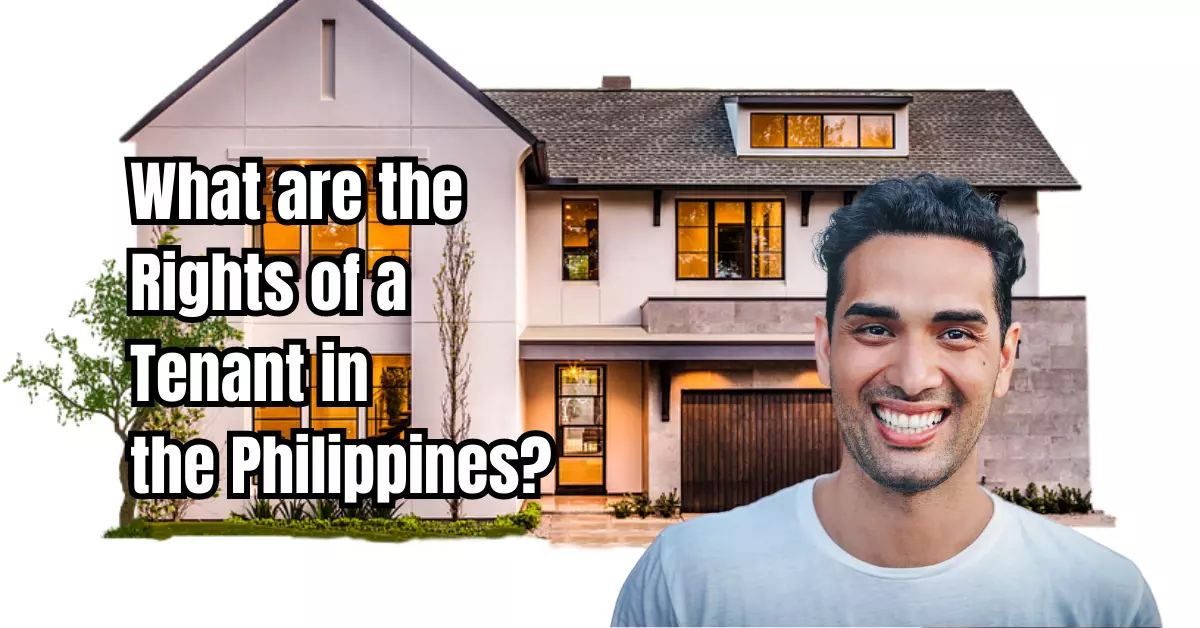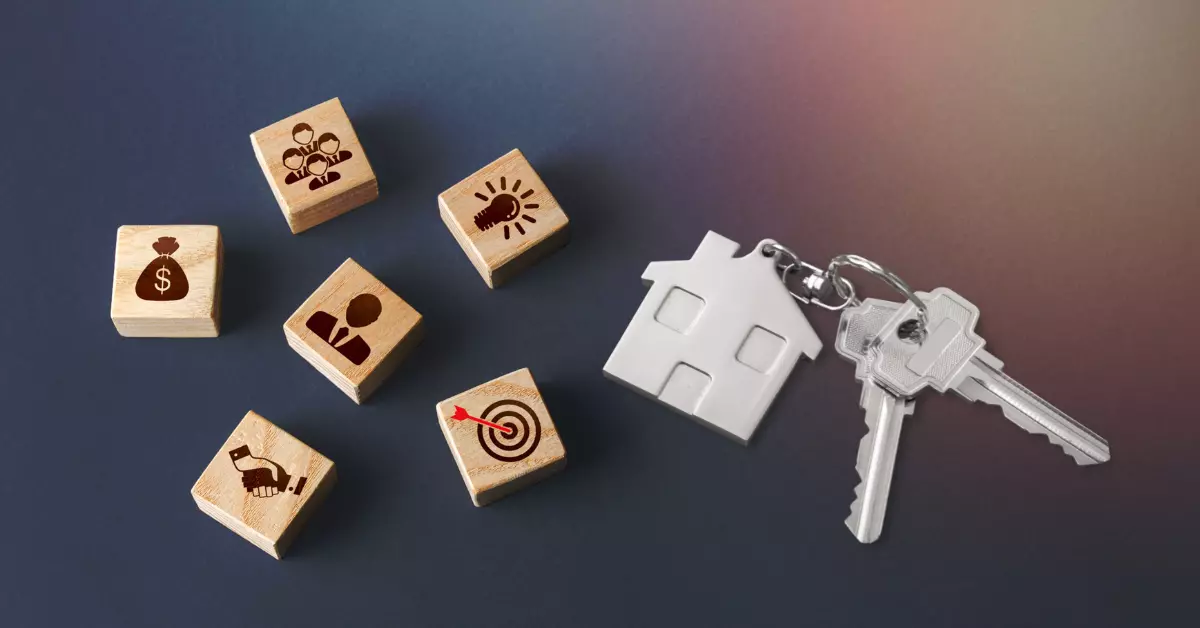What are the Rights of a Tenant in the Philippines?
In the Philippines, tenant rights include a fair and reasonable rental price set by law, protection against unjust eviction, a habitable living environment, and respect for their privacy. Tenants are also entitled to a written contract and receipts for rent payments.
You also have the right to privacy, meaning your landlord cannot enter your unit without your consent or without a valid reason.
When your lease contract ends, you have the right to lease renewal provided that you have not violated any terms in the agreement.
Lastly, the right to security of tenure ensures that you cannot be evicted without just cause or due process.

The Basics Of Tenant Rights In The Philippines
As a tenant in the Philippines, you are entitled to certain rights that protect your welfare and guarantee your enjoyment of the property you’re renting.
Understanding your tenant rights is crucial in ensuring that you know what you can and cannot do as a tenant, as well as what your landlord should and should not do.
Here, we’ll cover the basic concepts of tenant rights in the Philippines.
Differences Between Landlord And Tenant Rights
Landlord and tenant rights differ in many aspects. Landlord rights mostly revolve around property ownership, while tenant rights concern the possession and use of the rented property.
Here are some points that distinguish landlord and tenant rights:
- Landlords have the right to legally collect a security deposit from tenants, which they will return upon the end of the lease term, minus any necessary deductions.
- Tenants have the right to the full enjoyment of the property without any illegal and unwarranted disturbances from the landlord or any other person.
- Landlords usually have the right to terminate the lease contract if tenants fail to pay rent or abide by lease terms. However, tenants have the right to be informed in writing before the lease termination takes effect and to receive a receipt of all payments made.
Important Legal Documents For Tenants In The Philippines
Apart from the lease agreement, there are other legal documents that tenants in the Philippines need to be aware of.
These documents protect their rights and can help resolve issues that may arise during the tenancy.
Here are some of the essential legal documents that tenants should know:
- A valid proof of identity, such as a passport or government-issued id.
- The lease agreement, must clearly state the terms and conditions of the lease, including the terms of payment and security deposit.
- The official receipt of payment serves as proof of payment and helps avoid disputes between tenants and landlords.
- For long-term leases, tenants and landlords must register the contract with the registry of deeds within four months from the contract’s signing date.
Being aware of your tenant rights and the legal documents required in the Philippines can help you make the most out of your rented property without unnecessary conflicts with your landlord.
Always remember to comply with your lease agreement and Philippine laws to ensure a healthy tenant-landlord relationship.
Key Tenant Rights In The Philippines
As a tenant, it is crucial to understand your rights and responsibilities when renting a property in the Philippines. Here are some of the key tenant rights you must know:

Privacy And Security
- Tenants have the right to privacy and security in their rented property.
- Landlords are not allowed to enter the premises without giving reasonable notice, except in emergency situations.
- Tenants can request additional security features, such as locks or CCTV cameras, but they must not affect the structural integrity of the property.
Fair Rent And Rental Increases
- Tenants are entitled to pay a reasonable amount of rent, which should be clearly stated in the lease agreement.
- Landlords can only increase the rent once a year, with prior written notice of at least 30 days.
- The increase in rent should not exceed the maximum limit set by the rent control law of the Philippines.
Habitable Living Conditions
- Tenants have the right to a clean and safe living environment.
- Landlords are responsible for ensuring that the property is habitable and free from any health hazards.
- Any repairs or maintenance required in the rental property should be promptly addressed by the landlord.
Protection Against Discrimination
- Tenants are protected against discrimination based on race, gender, religion, or nationality.
- Landlords must not show bias or prejudice when selecting tenants or setting lease terms.
- Any discriminatory behavior by the landlord can be reported to the appropriate authority.
Safeguard Against Eviction
- Tenants cannot be evicted without just cause and proper legal procedures.
- Landlords must give written notice of at least 30 days for the termination of the lease agreement.
- In cases of eviction due to property renovation or demolition, the tenant is entitled to receive adequate compensation or assistance from the landlord.
As a tenant, it is important to know and assert your rights to ensure a hassle-free and pleasant renting experience in the Philippines.
Procedures For Exercising Tenant Rights In The Philippines
As a tenant in the Philippines, it is essential to know your rights and understand how you can exercise them. Here are the procedures you can follow when exercising your tenant rights in the Philippines:
Steps Tenants Can Take When Their Rights Have Been Violated
In the event that your landlord violates your rights as a tenant, here are the steps you can take:
Contact your landlord or property manager
If there is a problem with your living conditions, it is best to notify your landlord or property manager promptly. In most instances, they will fix the problem immediately.
Keep accurate records and documentation
In case the landlord does not act accordingly, keep detailed records of all communication and complaints you have with them.
This will help you should you later need to file a complaint with government agencies or in court.
Seek legal advice
If all else fails, do not hesitate to seek legal help. Consult with a lawyer who specializes in landlord-tenant disputes for assistance in pursuing your case further.
How To File A Complaint With The Philippine Government
If your landlord is not responsive to your complaints, you can file a complaint with the Philippine government agency responsible for hearing tenant complaints.
Here is how to go about it:

Gather and organize evidence and documentation
Collect all evidence that supports your claim, including copies of landlord-tenant agreements.
You should also collect receipts for any necessary expenses you have incurred to resolve the issue, and photos or videos documenting the problem.
File your complaint
Visit or in some instances, you can file a complaint online, addressing your complaint to the local government agency responsible for hearing landlord-tenant disputes.
Attend mediation
You will be given a day for the hearing of your complaint, and you may have the opportunity to resolve the issue through mediation.
Attend the hearing
If mediation fails, the government agency will schedule a hearing where you and your landlord will present evidence to a judge.
Legal Remedies For Tenants In The Philippines
If the government agency agrees that your landlord violated your tenant rights, they may order the landlord to provide appropriate relief. Here are some of the legal remedies you may be entitled to as a tenant in the Philippines:
Return of security deposit or initial deposit
The landlord must return your security deposit in full when you vacate the premises if you have no outstanding payments or damages.
Refund for any overpayment on rent
You can recover any excess amount you have paid your landlord.
Repairs to the rental unit
The landlord must make appropriate repairs to the rental unit and return it to the tenant’s appropriate condition.
Monetary damages
The landlord may be ordered to pay monetary damages to the tenant for any harm, loss, or injury suffered by the tenant because of the landlord’s violation of their tenant’s rights.
Additional Resources And Information For Tenants In The Philippines
Tenant rights are an important issue in the Philippines, and it’s essential to know what you’re entitled to as a tenant.
However, finding reliable information and resources can be challenging. To make your search easier, we’ve compiled a list of organizations and websites that support tenant rights in the Philippines.
We’ve also included some tips on finding safe and affordable housing in the country.

Organizations That Support Tenant Rights In The Philippines
There are several organizations in the Philippines dedicated to supporting tenant rights. These include:
tenants association of the Philippines (tap)
Tap is a non-profit advocacy group that works towards promoting tenant rights and welfare.
They assist tenants in asserting their rights and provide legal support to those in need. Tap also offers seminars and workshops to educate tenants on their rights.
urban poor associates (upa)
Upa is an NGO providing legal services to urban poor individuals and communities.
They assist tenants in evictions, rent increases, and other housing-related issues. Upa also provides tenants with information on their rights and legal options.
National housing authority (Nha)
Nha is a government agency tasked with developing and implementing national housing policies.
They provide affordable housing to low-income individuals and families and implement programs to ensure housing security.
Websites To Access Information And Resources For Tenants
The internet is a great resource for tenants looking for information and resources. Some of the websites you can access for tenant resources in the Philippines include:
philippine tenants’ rights
Philippine Tenants’ Rights is an online resource that provides information, articles, and legal resources for tenants. They also offer a free hotline where tenants can ask for legal advice.
coconuts manila
Coconuts Manila is an online news source that covers housing issues in the Philippines. They publish articles on tenant rights, housing policies, and rental scams.
rentpad
Rentpad is a real estate website that helps tenants find affordable rental properties. They provide information on rental prices, locations, and amenities.
Tips For Finding Safe And Affordable Housing In The Philippines
Finding safe and affordable housing in the Philippines can be a challenge, but it’s not impossible. Here are some tips to help:
- Look for trusted resources: Use sources such as real estate websites, reputable agencies, and tenant support groups to find safe and affordable housing.
- Check the location: Make sure that the location is safe and that there are amenities such as transportation, groceries, and hospitals nearby.
- Read the lease agreement carefully: Make sure that you understand all the terms and conditions of the lease agreement before signing.
- Negotiate on rent: Negotiate the rent price with landlords and try to find a mutually beneficial agreement.
- Verify the landlord: Research the landlord or rental company, and verify their legitimacy and history with other tenants.
Frequently Asked Questions Of What Are The Rights Of A Tenant In The Philippines
What Are The Basic Rights Of A Tenant In The Philippines?
Tenants in the Philippines have legal rights that include privacy, peaceful possession, and habitability of the property.
Can Landlords Evict Tenants Without Reasons In The Philippines?
Landlords in the Philippines cannot evict tenants without valid reasons such as non-payment of rent, violating the rental agreement, and breach of peace.
Is A Security Deposit Required In The Philippines For Renting A Property?
Yes, landlords in the Philippines can require tenants to give a security deposit equivalent to one month’s rent. This serves as a guarantee for unpaid rent or damages.
How Often Can Landlords Increase Rent In The Philippines?
Landlords in the Philippines can increase rent only once a year, with a maximum of 10% increase based on the property’s prevailing market value. They need to provide written notice to the tenants at least 3 months before the increase.
Conclusion
Securing your rights as a tenant in the Philippines guarantees peace of mind. Remember, you’re shielded by laws protecting your privacy, setting fair lease terms, and ensuring the property’s habitability.
Don’t let anyone undermine your rights – they are there for you to uphold and enjoy your home.